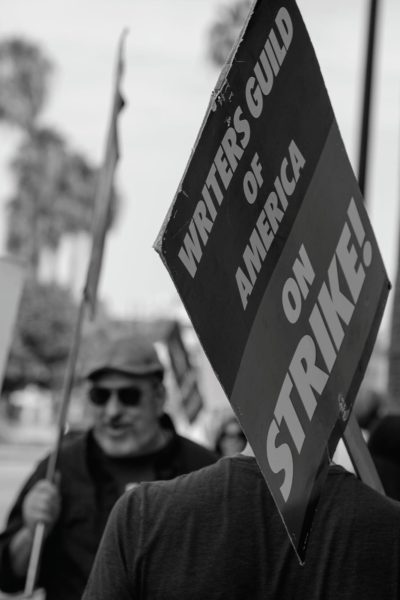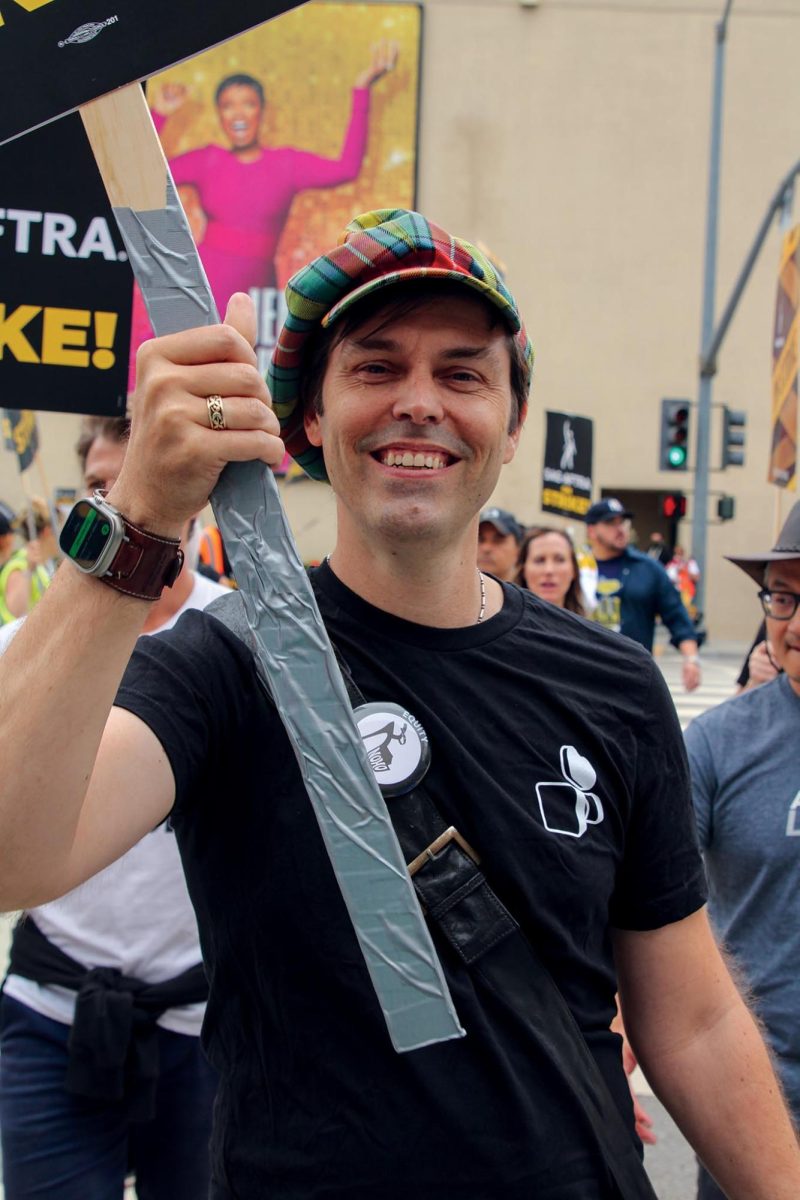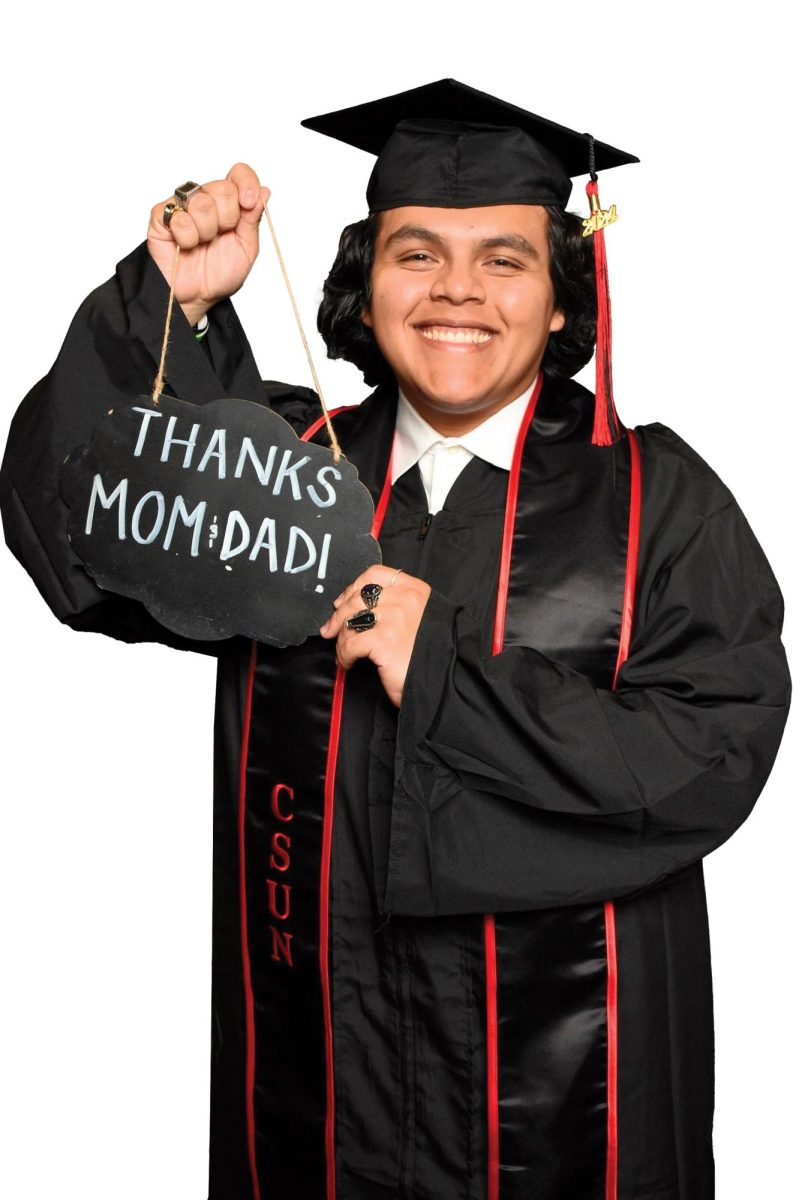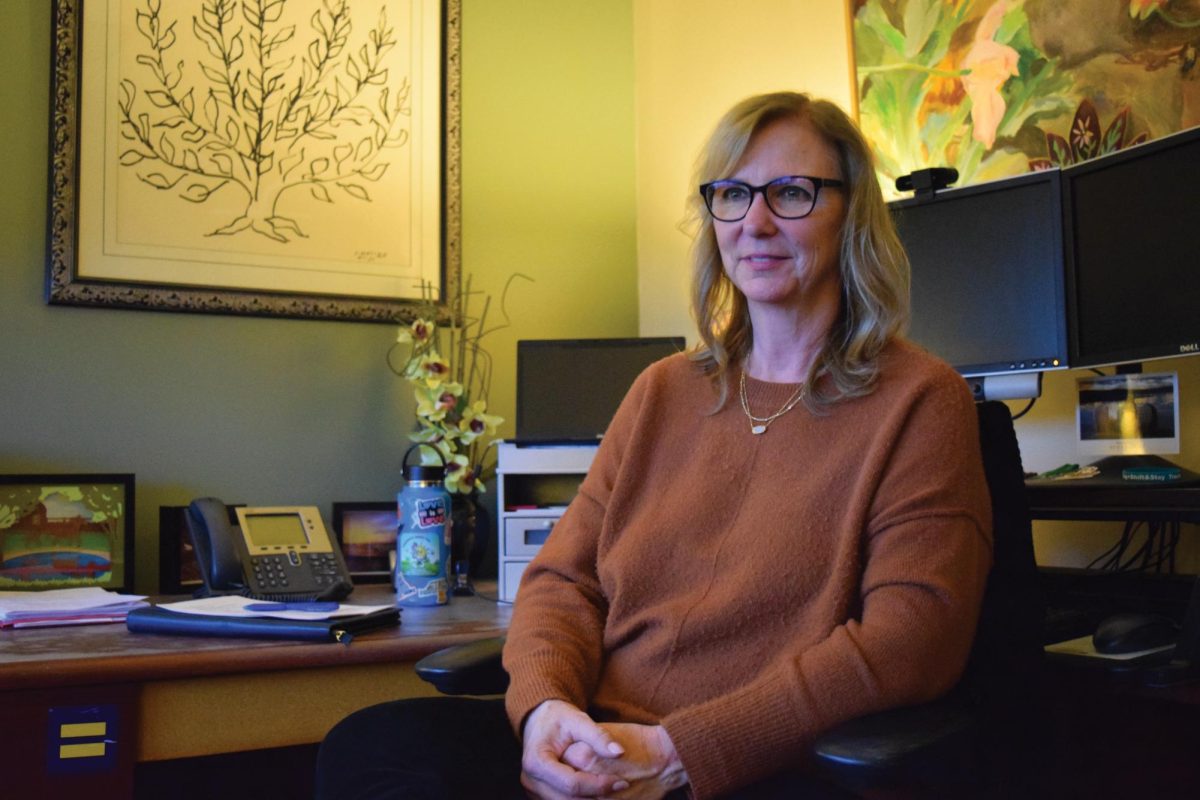Jan-David Soutar is an experienced actor with nearly 20 years of work. He is a screenwriting major at CSUN who expects to graduate in the spring. He is the current president of the Cinema Club, but his life hasn’t just been made up of a series of highs. It is common for lesser known writers and actors like Soutar to be exploited and underpaid by film and television studios.
Over the years Soutar has experienced many obstacles. In 2013, he even experienced homelessness.
“Probably one of the lowest parts of my life, and it wasn’t because I was doing anything stupid,” Soutar says. “I just couldn’t make money. As an actor, you go through dry spells… you’re living for every single role.”
The 45-year-old actor has been a member of the Screen Actors Guild-American Federation of Television and Radio Artists (SAG-AFTRA) for 10 years.
SAG-AFTRA voted to strike on July 17, emboldened by the Writers Guild of America (WGA) and their recent strike, which started just weeks prior. It was the first time both unions have gone on strike at the same time since 1960.
This strike means 160,000 actors will not work until the big studios and producers agree to the union’s demands. Soutar and his colleagues want higher pay, increased job stability and most importantly, adaptations for working with streaming services and protections against the world’s new big baddie: artificial intelligence.
“Writers are facing the most comprehensive assault on compensation and working conditions that they have seen in a generation,” the front page of WGA’s strike website read during their strike. “The studios have taken advantage of the transition to streaming to underpay entertainment industry workers, including writers in every area of work.”
SAG-AFTRA’s website held a similar message.
“Here’s the simple truth,” it read. “We’re up against a system where those in charge of multibillion-dollar media conglomerates are rewarded for exploiting workers.”

WGA announced Sunday, Sept. 24, that they had reached a tentative agreement with Hollywood studios, with the new terms being called exceptional. Their strike officially ended Wednesday, Sept. 27. Meanwhile, the actors remain on the picket lines.
For the next few months, or even years, the future of the film industry is at stake. Writers and actors are fighting tooth and nail to preserve this line of work as a main source of income, instead of just a hobby or a side hustle. CSUN film students who want to make movies should be watching closely. Their careers depend on it.
Now, Soutar is sitting in a booth at Emle’s, a Mediterranean American restaurant within walking distance of Manzanita Hall. A half-eaten plate of eggs Benedict sits in front of him, a latte in his hands. “I worked for some really interesting places as an actor,” Soutar reminisces. “I worked for the CIA. I worked for the FBI… I was a spokesperson for their in-house training videos.”
If you are not a millionaire movie star or a top-bill writer, the industry is rough, especially in Los Angeles. Gigs are few and far between, competition is high, and rarely is anyone paid what they are worth.
In the days of broadcast cable, a TV show could have 20 or more episodes. This gave writers and actors guaranteed work for a longer period of time. But today, a season of a typical show debuting on streaming services may only have six to 10 episodes. That means less time working, less time with financial security, and more time looking for the next gig.
Soutar lived out of his car with his dog for a year before managing to pull himself out with the help of his friends and move to Eagle Rock. Now that he is in school, federal grants have been keeping him afloat, but the future still feels unsteady. Todd Holmes, a professor of entertainment industry management at CSUN, says the “gig economy” that most of the industry relies upon is unsustainable and leaves many workers stressed and lacking job security. Most of them are used to picking up side jobs to pay the bills.
“The vast majority of writers and actors are almost paycheck to paycheck,” Holmes says. “And you might have a great show that you’re on, or get on a great film — and sure, that can sustain you for a while — but then you have to look for the next thing.”
Soutar, however, does not like thinking of his jobs as gigs. He got burned out trying to chase roles that didn’t interest him. He wanted roles with real meat on their bones, instead of mediocre commercials.
“If all your interest is chasing a gig, then you’re going to wind up being a very transactional actor, which is not my vibe,” he says. “Some people really care about money. Some people are really, really dedicated to money. I am way more about the art than I am the money, which is probably to my deficit.”
Even Soutar’s friend, who is a talented and notable actor, struggled for work before the strike.
“He was praying for a job overseas because he can’t work in America,” Soutar says, taking a sip of his latte. “Talent and name only gets you so far. You still got to pay your bills. And that’s the issue that we’ve got right now, you’ve got people that were working steadily but couldn’t pay their bills.”

Holmes says the conditions are so bad, it is likely the industry could lose some people permanently as they transition to other, more stable work. To combat this, the unions are asking for higher wages to combat inflation and an increased minimum amount of time that workers can spend on their projects.
Residual checks are another sticking point. They’re like royalties, where writers and actors receive money every time their work is aired on TV after their original release.
But if your show is not “Friends” and your movie is not “Titanic,” good luck getting enough to live off. One day, Soutar received a residual check in the mail for his work on the show “The Banshee.” He earned a grand total of 63 cents.
Streaming services also make it a lot more complicated. Movies and shows are not run, but can be replayed by individual viewers and subscribers at any time. Because of that, the calculations to determine how much writers and actors earn from streaming are far more confusing.
Jon Stahl, a screenwriting professor at CSUN, said major streaming services are not transparent with their numbers, which makes it hard for writers and actors to know if they are being paid fairly. The unions are trying to negotiate simpler rules that pay writers and actors each time their work is streamed.
“The streamers are not forthcoming to the writers [and actors] in terms of how many people watch these shows,” Stahl says. “So there’s no way to check how many eyeballs are watching a show that’s on a streamer. And therefore, the residual checks are suspect.”
And what about artificial intelligence? Its looming silhouette grows in the distance with every passing day.
Soutar leans forward in the restaurant’s booth. “They’re trying to make actors even more of an avatar than natural acting… scanning people head to toe so that they can then use them later as background, wherever they want, without their permission.”
He is talking about a real proposal that, according to their chief negotiator, Crabtree-Ireland, SAG-AFTRA received from the Alliance of Motion Picture and Television Producers (AMPTP). This outlined their desire to scan background extras, pay them for one day’s worth of work, and then hold on to their digital likeness to use in all future projects, in perpetuity, without consent. AMPTP has denied these claims, saying an actor’s digital likeness is only valid for the movie or project in which they’re employed.
“That’s gross,” Soutar says. “That’s absolutely gross.”
Writers are also affected by AI. In a grim future, Hollywood studios may use the technology to completely generate an entire script, perhaps hiring only one or two writers after the fact to polish the machine’s work. But for work the studios deem less valuable, like brainstorming ideas or writing for commercials, real humans might not be involved at all.
“No human writer will ever write the first draft again, which is the one that they usually get paid the most for,” says Patti Carr, a television writing professor at CSUN. She also previously served on WGA’s Board of Directors.

Stahl says unions are trying to install protections to avoid a worst-case scenario because they expect the studios to use the technology to save money, even if it results in a worse product.
“It’s impossible for a machine to write something with heart. Machines don’t have hearts,” Stahl said. They don’t feel emotions… but here’s the issue — would that stop the studios from using AI generated material anyways? We think not.”
It is just plain corporate greed, Soutar thinks.
“Think about it this way,” he said. “If you’re a company, and your goal is your bottom line, and your only loyalty is to your stockholders and there’s a thing out there called ChatGPT that says it can write a script for you, you’re gonna ask it to write a script, and you’re not gonna bother with any writer that has a personality.”
Except for AI, none of these problems are new. They have been slowly building by growing more and more threatening over the years. Writers and actors’ livelihoods reached a breaking point when the unions voted to go on strike.
Studios have been holding on thanks to finished projects they already had in the pipeline, like “Oppenheimer” and “Barbie,” both of which were blockbusters that generated a ton of cash — but that well is drying up. No writers and actors working means nothing to release. There’s no income.
“You gotta keep putting things into the system if you wanna continue making money,” Holmes said. He recently reported to CNBC his estimate that California’s economy lost nearly 3 billion dollars in the first 100 days of the strike.
It has been tough to hold out for so long. Striking workers still get access to income through strike funds, which have been beefed up thanks to generous donations from big industry names like Seth MacFarlane, Steven Spielberg, and Vince Gilligan. However, they’re still out of a job for the foreseeable future.
It’s a war of attrition to see who can suffer the longest, the workers or the studios. And the anxiety is bleeding through to students.
Holmes holds discussions in class about the strike. He says his students often ask him, “Are there going to be any jobs when I graduate? Am I cursed?”
While WGA has reached the end of their strike, SAG-AFTRA is still fighting. But Soutar is not worried. He sees the world partaking in an incredibly rich pro-union movement. But one thing lingers in Soutar’s mind: will the next generation of filmmakers be prepared to fight, just as the current generation has?
“I’m more concerned that there will be complacency in the fight for labor rights,” Soutar said. “I’m always worried that they won’t appreciate how hard this work was. And then when they need to do it, they won’t know where to start, because the foundation has been eroded by corporate lobbyists or something.”
Soutar offered parting advice to worried, anxious and concerned CSUN students who are fretting over their film futures.
“It’s really, really crucial to put yourself out there with other people that are striking to form solidarity, because you never know when you’re going to run into somebody,” he said. “And you’re like, ‘Oh, wow, we met on the strike. And now you’re interviewing me for this position.’”
No matter what happens, he says to not sweat it. At this age, growth is inevitable. Things will adapt and evolve, both the industry and ourselves.
“This too shall pass.”



